Ford F150 Lightning vs Tesla: 5 ways I think Ford's EV wins
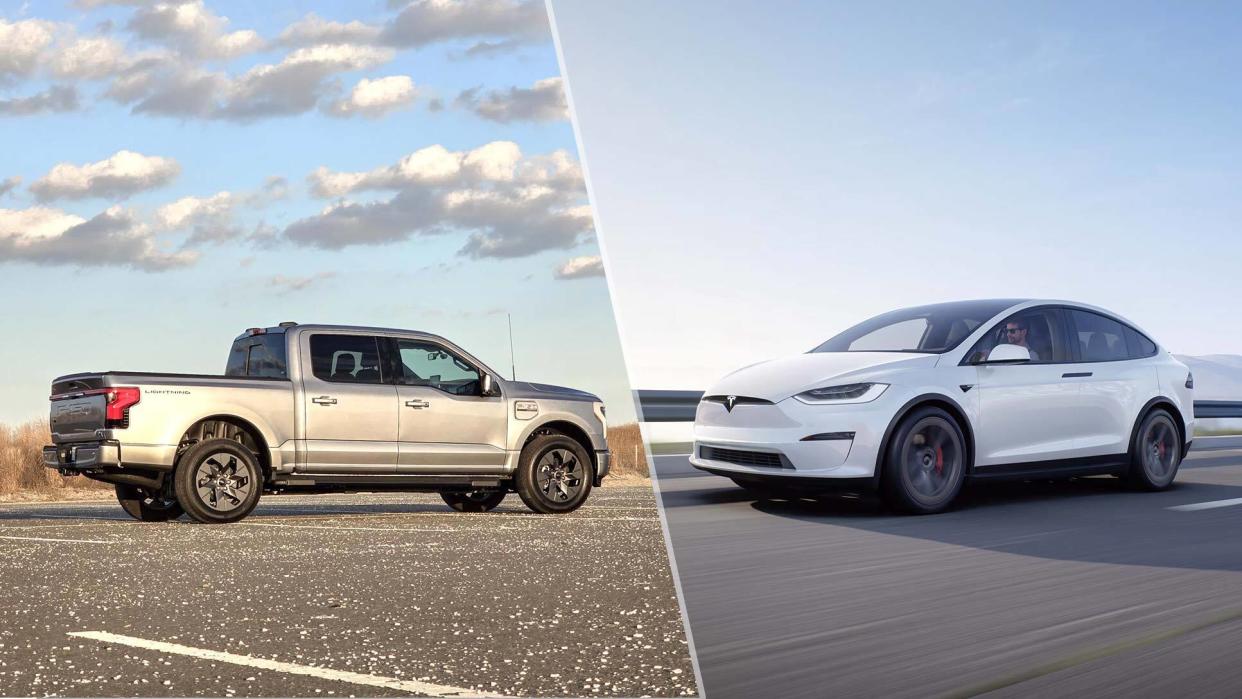
It’s been a long time since I last bought a car, but buying a new vehicle today is more intimidating than ever before. That’s because the best electric cars have an incredible amount of savings potential, giving drivers even more to think about before they happily drive off the lot. While Tesla remains the market leader in this competitive space, I can’t tell you how I’ve been spoiled by test driving the Ford F150 Lightning over a weekend.
There’s a reason why you see more Tesla EVs on the road than anything else, so the bar has been set high for all other EVs to match them. I’m fully aware about the advanced technology and conveniences they offer after checking out a Tesla Model 3. However, the Ford F150 Lightning blends the classic styling of the pickup and injects much-needed future proofing with its all-electric power.
Sure, I did find it challenging to charge the Ford F150 Lightning at a Tesla Supercharger station, but after clocking in serious driving time and doing additional research, I’m convinced it’s better than Tesla. Although, the majority of your decision should be based on what you need an EV for. I fully understand that a full-sized pickup truck isn’t really suited for city driving, but there are other reasons that make it practical over a Tesla.
I won’t just make comparisons against a single model, but rather, I’ll mention how the entire lineup stacks up against the F150 Lightning — so expect to read about references on the Tesla Model 3, Model S, Model X, Model Y, and even the Cybertruck.
It accelerates just as fast
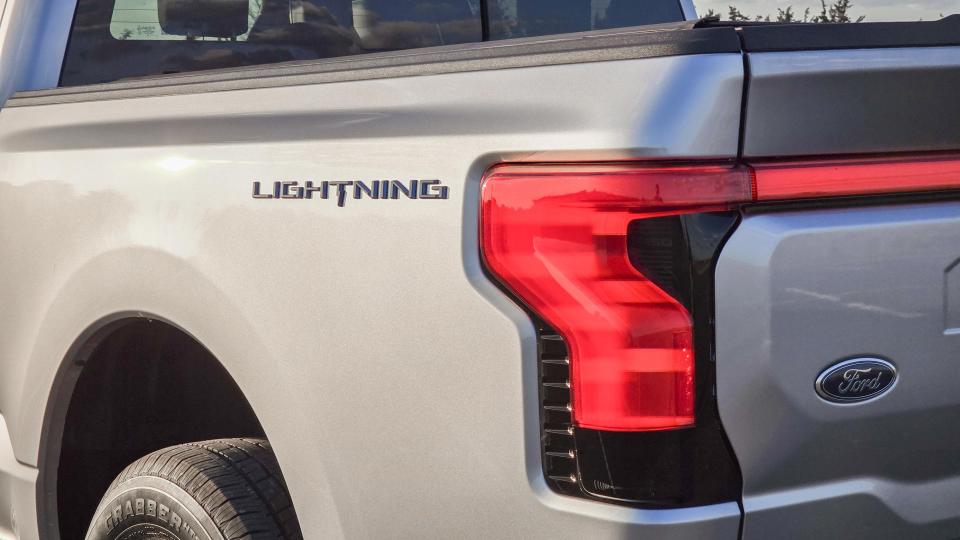
Here’s the thing I learned about EVs: they all have obnoxiously fast accelerations. Take even the cheapest EV on the market, the Nissa Leaf, which has a 0 to 60 mph time of about 5.5 seconds. The Ford F150 Lighting takes a smidge under 4 seconds, while the most affordable Tesla, the Model 3, takes about 5.8 seconds.
All the other Teslas, including the Cybertruck, pull in faster times, but I hardly think 2 seconds is wide enough of a spread for most people. In fact, my Corolla takes a whopping 10 seconds to get to 60 mph — which is turtle timing when you think how these EVs do it in less than half the time. Even more impressive is the fact that the F150 Lightning is a pickup truck, versus the sedan and SUV stylings of these Teslas.
Same range on a full charge
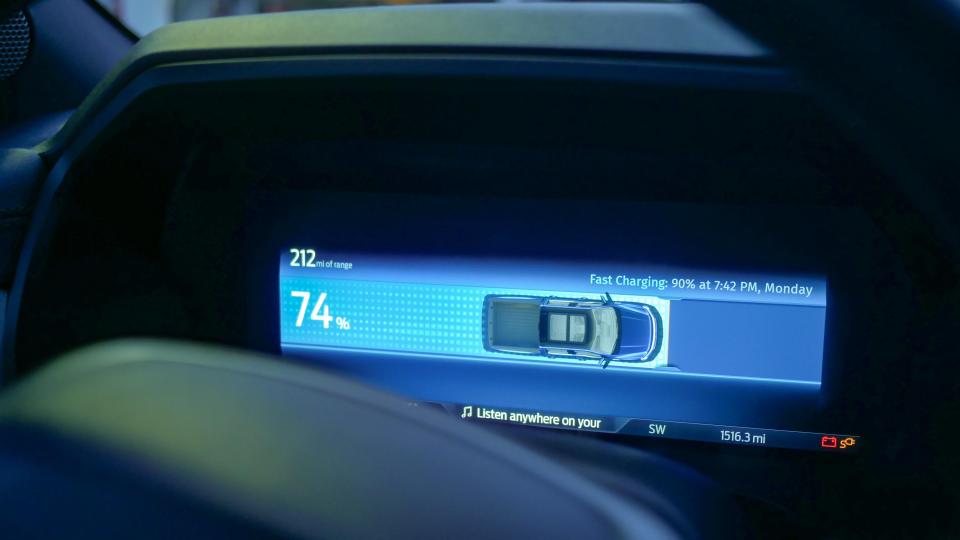
In the same manner, the Ford F150 Lightning also has the same, if not, better range than some Tesla EVs. For example, the Ford F150 Lightning XLT (second model up from the base version) with the extended range option gives it a maximum range of 320 miles with its 131 kWh capacity — whereas a comparable Tesla, the Model Y, gets up to 310 miles on a full charge.
Other Teslas technically offer better range, but again they’re not overstepping the Ford F150 Lightning by leaps and bounds. For example, the SUV-like Tesla Model X gets a range of 326 miles — while the Cybertruck does better at 340 miles.
More cabin room for passengers

This is probably the single area where the Ford F150 Lightning beats Tesla. You can comfortably fit five people inside of the F150 Lightning due to the amount of legroom and height it offers passengers. The rear cabin in particular has the biggest disparity because it has the widest shoulder room at 66 inches, versus the next closest at 56.9 inches with the Tesla Model X. Don’t get me started with the Model 3 either even though it’s cheaper than the F150 Lightning, mainly because it feels more cramped in the rear passenger area with its 54.2-inch shoulder room.
You have your choice of Android Auto or CarPlay
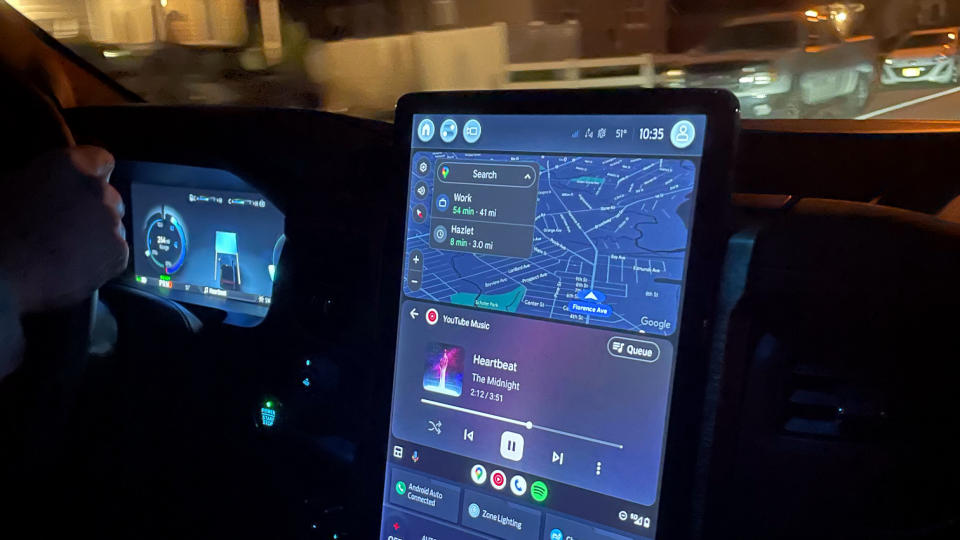
I rely on my phone for everything, including things such as turn-by-turn directions and streaming music. This is why I prefer the Ford F150 Lightning over Tesla because you have the choice of choosing your infotainment system: Android Auto or CarPlay. This essentially lets your phone become the entertainment system for the Ford F150 Lightning, giving you access to most of the apps you know, love and interact with on the daily.
In contrast, Tesla doesn’t give you the option — forcing you instead to use its own Infotainment System. While there are apps you’re familiar with, like Apple Music, Spotify, and Netflix, it doesn’t have the same seamless experience with the stuff you’re used to using on your smartphone. For example, if you use another music streaming service, such as YouTube Music or Pandora, you’ll have to essentially pair your phone via Bluetooth to play music through the speakers.
More utility with its flatbed and frunk
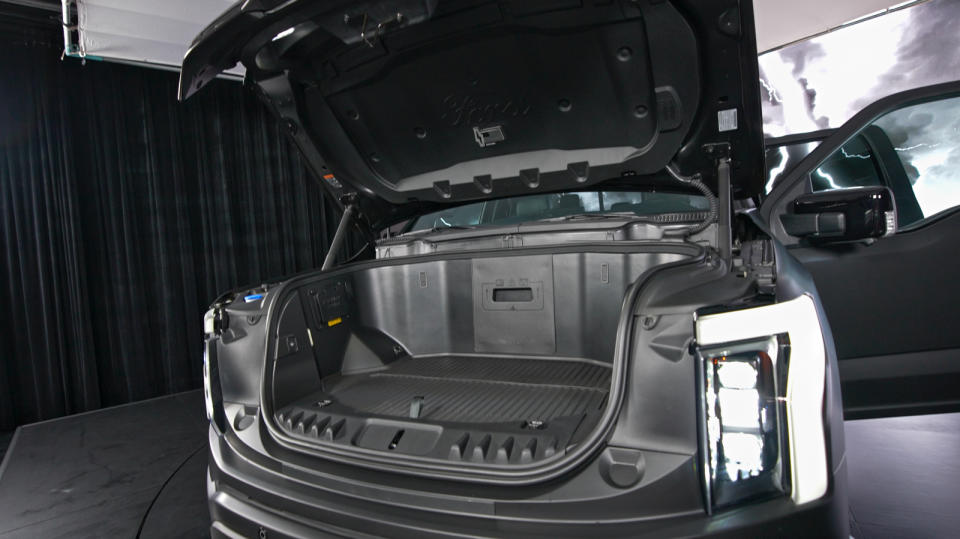
Finally, the last reason why the Ford F150 Lightning beats Tesla is an obvious one if you’ve ever tried picking up a dining room table with a sedan. The flatbed of the F150 Lightning gives it the utility you won’t get in any Tesla sedan or SUV, so carrying bigger pieces of furniture or electronics isn’t going to be a problem for it. If you’re worried about losing the space you’d normally have with a truck, then just know that the Ford F150 Lightning has a ginormous frunk (front trunck) that can fit just as many groceries as a Tesla’s trunk space.
